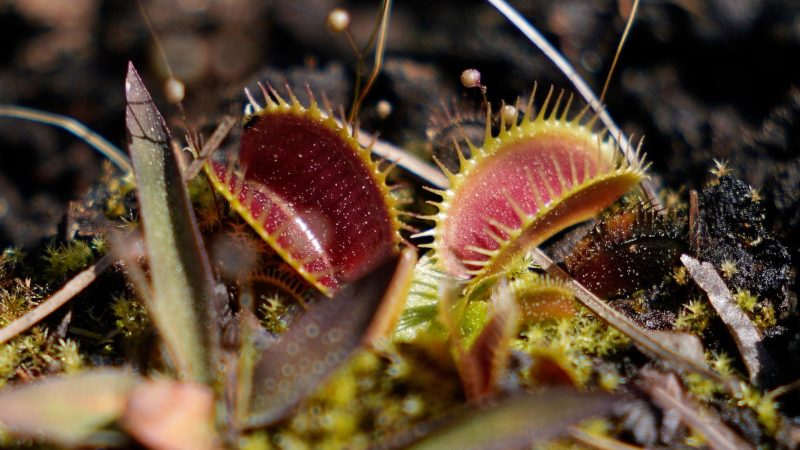
Venture into the captivating world of carnivorous plants, specifically the iconic Venus flytrap, thriving in the unique ecosystem of the Carolinas. Park ranger Jesse Anderson leads weekly hikes, offering a rare glimpse into the natural habitat of these fascinating organisms. Unlike the monstrous portrayal in ‘Little Shop of Horrors,’ wild Venus flytraps are delicately sized, posing no threat except to unsuspecting insects. Their ingenious trapping mechanism, involving sensitive hairs and digestive enzymes, ensures a supplementary nutrient source in their nutrient-poor environment.
These hikes at Carolina Beach State Park aren’t just about Venus flytraps; they showcase a diverse range of carnivorous plants, including pitcher plants, butterworts, sundews, and bladderworts, each with its unique insect-catching strategy. The park offers one of the few remaining opportunities to witness Venus flytraps in their natural habitat, as these plants are exclusively found in a limited area spanning southeastern North Carolina and parts of South Carolina. The best time to witness this natural spectacle is during their blooming season, from mid-May to mid-June.
The survival of Venus flytraps is intricately linked to natural wildfires, which clear away dense overgrowth, providing the essential sunlight these delicate plants require. However, they face significant threats from poachers and habitat destruction due to rapid development. Poaching is a serious offense, with hefty penalties imposed to protect these remarkable plants. In fact, a man was once sentenced to 17 months in prison for stealing nearly 1,000 Venus flytraps!
Despite conservation efforts, the population of Venus flytraps is estimated to be around 300,000 in the Carolinas. While witnessing them in the wild is a privilege, commercially grown plants are readily available, allowing you to cultivate these fascinating wonders at home. Remember, they require specific conditions: nutrient-poor soil, rainwater or distilled water, abundant sunlight, and moist (but not waterlogged) conditions. And please, resist the urge to feed them hamburger – they prefer a more natural diet of insects, and unnecessary triggering of their traps consumes precious energy.
So, if you’re looking for a unique and unforgettable nature experience, consider joining one of these guided hikes. It’s a chance to connect with nature’s wonders and learn about the delicate balance of this incredible ecosystem. And who knows, you might even catch a glimpse of a flytrap in action!










